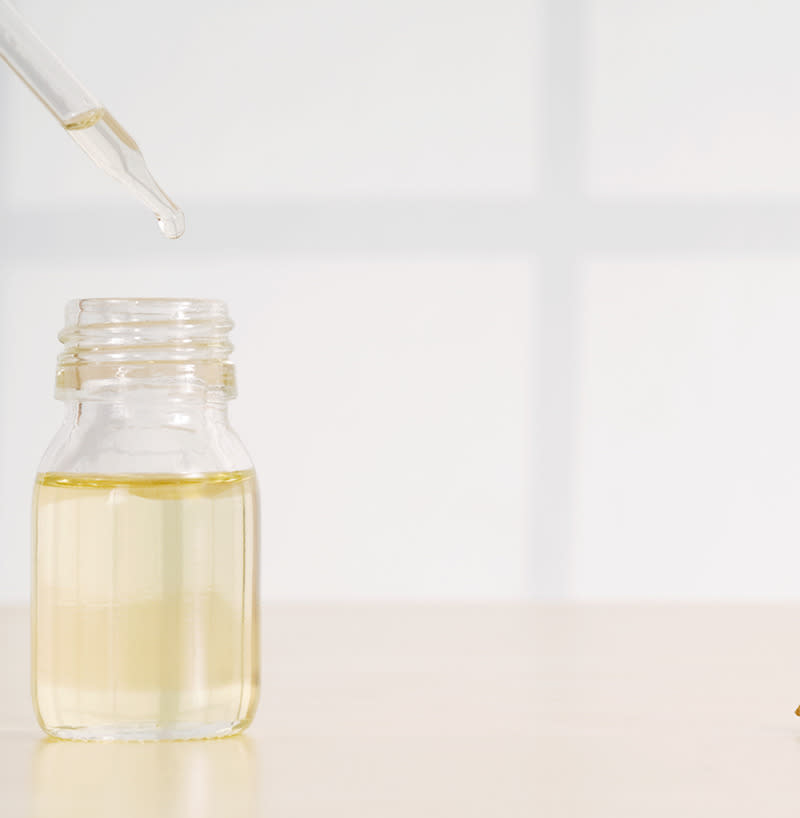5 Natural Mosquito Repellents for When You Don’t Want to Use DEET

Many essential oils offer some protection from the bloodsucking bugs. (Photo: Getty Images)
Mosquitoes have become enemy No.1 now that Zika virus has been declared a global health emergency.
The virus, which has been linked to brain damage in newborns, is spread by the Aedes mosquito and is a particular concern for pregnant women.
The Centers for Disease Control and Prevention currently advise that pregnant women avoid travel to areas of the world currently affected by Zika (the Americas and the Caribbean). If you must travel to those areas or are concerned about mosquito-borne illness in general, the CDC recommends wearing protective clothing, staying indoors during peak mosquito activity times (dawn and dusk), and using insect repellents.
Related: Is This Mosquito Repellent Your Best Defense Against Zika Virus?
“Repellents containing active ingredients, such as DEET and picaridin, which have been registered with the EPA, are considered safe for pregnant and breastfeeding women,” the CDC says on its website. People are often cautious of using DEET (even if they’re not pregnant), although the CDC and limited studies have not found a link between the chemical and birth defects.
While doctors say DEET is generally safe to use during pregnancy, many are also cautious about it. “I generally try and present options that minimize exposure to potential toxins in pregnant women,” Jason James, MD, medical director at Miami’s FemCare Ob-Gyn, tells Yahoo Health.
“We have to keep in mind that DEET is a pesticide and pesticides are toxic,” Matthew Brennecke, a board-certified naturopathic doctor practicing at the Rocky Mountain Wellness Clinic in Fort Collins, Colo., tells Yahoo Health. “Although the amount of DEET applied when surrounded by mosquitoes is relatively little, it will still create some sort of toxic burden to the fetus, which may not show any effects initially, but later in life may be part of the accumulation of toxins (pesticides, heavy metals, etc.) that could possibly present problems.”
Related: Florida Declares Zika Public Health Emergency: What Does That Mean, Exactly?
Interested in trying a natural mosquito repellent instead of DEET? Experts say these are worth a look:
Citronella essential oil
This oil is extracted from the citronella plant, a grass that grows in some Asian countries and the South Pacific. “I personally love citronella essential oil,” women’s health expert Susan Lin, MD, tells Yahoo Health. “It works well when applied frequently with adequate quantity.” (Brennecke notes that it needs to be reapplied every 30 to 40 minutes.) While citronella oil is an effective bug repellent, Lin recommends finding a high quality oil, since the diluted or synthetic versions may not work as well.
Soybean oil
This oil is effective at keeping insects away, but Brennecke says that it needs to be applied “much more frequently” than some other alternatives. It shows up in several all-natural repellents, but is difficult to find on its own.
Oil of lemon eucalyptus
Oil of lemon eucalyptus is a plant-based oil derived from the leaves of the Eucalyptus citriodora tree that contains a chemical that repels mosquitos. This is a favorite of Brennecke, due to its longer-lasting protection compared to other natural products. “Protection from insects can last up to two hours and you don’t have to apply it as often as citronella products,” he says.
Lavender oil
The oil has been used as a bug repellent for centuries. In the past, it was used to protect clothes from moth and other insect infestations (which may explain why drawer liners often come in a lavender scent). Typically, it’s recommended that you mix it with another oil so it doesn’t irritate your skin. “High concentrations of these products can be harmful as well,” says James.
Rosemary oil
Rosemary oil, which is extracted from rosemary leaves, crops up in some all-natural insect repellents, but it’s expensive on its own.
Cedar bark oil
This essential oil is derived from foliage, wood, and roots of pine or cypress plants. Like soybean and rosemary oils, cedar bark oil often shows up in all-natural repellents.
Related: 10 Essential Facts About the Zika Virus
In light of the threat of Zika virus, experts advise using a natural product along with a product that contains DEET, just to be safe. “Given the current situation with Zika, as much as I would like to use natural products, I would recommend adding DEET together with natural options,” says Lin.
Adds James: “I am comfortable suggesting the use of DEET-containing repellants because the risk associated with being bitten is so great.”
More on the Zika virus on Yahoo Health:
Zika Virus Symptoms: What Are They?
Do Pregnant Women in the U.S. Need to Worry About Zika Virus?
What to Know About the Zika Virus If You’re Trying to Get Pregnant
U.S. Issues Treatment Guidelines for Infants Exposed to Zika
10 Essential Facts About the Zika Virus
What Happens When Countries Without Abortion Advise Against Pregnancy?
Can Brazil ‘Zika-Proof’ in Time for the Olympics?
Zika concerns grow across the U.S.
Let’s keep in touch! Follow Yahoo Health on Facebook, Twitter, Instagram, and Pinterest.

